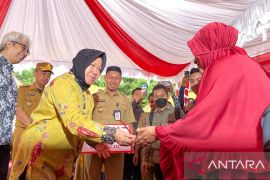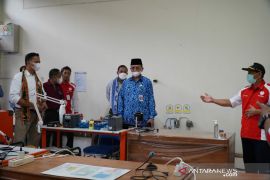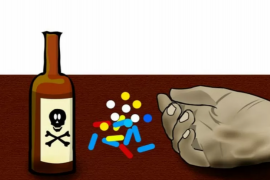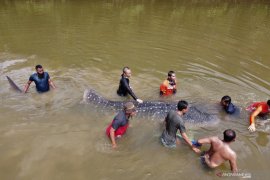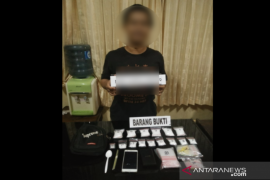The declaration was issued at the end of a meeting facilitated by the Oral Tradition Association in cooperation with the United Nations Education and Cultural Organization (UNESCO) representatives in Indonesia.
At least two Unhalu students were killed in the bloody incident between two groups of students at the university campus, The two fatalities were identified as La Ode Muhammah Hijra, 23, an Unhalu student majoring in physics; and Udin, 21, a student of the university`s faculty of agriculture.
"The incident that claimed two lives at the same time has tarnished the Kendari Peace declaration on the same day, and we are really concerned over the happening," Southeast Sulawesi local legislator Nursalam Lada said in Kendari on Friday.
The Oral Tradition Association and UNESCO representative in Indonesia had made every effort to create peace along with all its cultural blessings but their dream was just proved an illusion.
They dreamed of peace in Southeast Sulawesi and then declared it on Thursday but the declaration was only a preparation for the incident at Unhalu campus.
"It was an extremely regrettable incident. Students who should have disseminated the peace declaration among the wider public, they themselves were actually involved in conflict," Nursalam Lada said.
As a representative of the people, the politician of the Indonesian Democratic Party Struggle (PDIP) strongly condemned the brains behind the clash at Unhalu campus.
"On behalf of the Southeast Sulawesi people, I for one strongly condemn the actors involved in the bloody dispute that claimed the lives of La Ode Muhammah Hijra and Udin," Nursalam said.
Therefore he called on the police to investigate the cause of the incident and to take the firmest possible action against the perpetrators.
Nursalam also asked all community leaders in the city of Kendari not to be provoked by the incident, but instead try to help restore security around the campus of Haluoleo University.
"Brutal acts will not be solved if they are dealt with in brutal manner. We have to exercise self-restraint and leave it fully to the security agencies," he said.
A few hours before the bloody incident broke out around Haluoleo University campus on Thursday evening, UNESCO representative and Oral Tradition Association had sponsored the issuance of the Kendari Peace Declaration.
The declaration contains an invitation to all tribal communities in Indonesia and around the world to keep and maintain peace and security on the face of the earth.
Manuscript of Kendari Declaration was signed jointly by Indonesian National Committee for UNESCO Chairman Arief Rahman, Haluoleo University Rector Usman Rianse, and Oral Tradition Association Chairman Pudentia.
After the signing, the manuscript of the declaration was read out in unison by the representatives of all ethnic communities in Indonesia, namely Buton, Tolaki, Toraja, Bajo, Jawa, Papua, East Nusa Tenggara, Bima in West Nusa Tenggara, Madura, Sunda, Bali, Muna, Manado, Aceh, Makassar, Batak, Banten, Bugis, Flores, Padang, Aceh, Dayak, Kutai, Manado, and Ambon.
The declaration was made in the framework of an international educational workshop themed "Celebrating Diversity" in Kendari on Thursday.
Meanwhile, Oral Tradition Association Chairman Pudentia said the Kendari Declaration aimed at uniting all ethnic communities and diversity across the country in a single frame of life.
Besides, he said, cultural diversity should not be discussed only in cultural seminars but it should as well yield a peace declaration.
"We want to demonstrate to the world that through the existing cultural diversity and oral tradition we can create a harmonious living," Pudentia said.
Deputy National Education Minister Fasli Jalal said in a video conference at the opening of the Celebrating Diversity international workshop themed on Thursday that oral traditions contain moral values that have an important role to play in forming the nation`s character.
"We are often at a loss about the right concept to build the nation`s character but in reality it already exists in our oral traditions," Fasli Jalal said.
The Celebrating Diversity international workshop is organized by Oral Tradition Association in cooperation with Haluoleo University to discuss various oral traditions in a bid to uncover the mystery behind the problem related to the potential inter-ethnic conflict in Southeast Sulawesi.
Lasting for three days from Thursday to Saturday, Sept 8-10, 2011, the international workshop at Haluoleo University campus in Kendari is participated in by experts from several countries such as Singapore, Brunei Darussalam, and Timor Leste.
Fasli Jalal said the National Education Ministry at present is intensively developing character education through oral tradition.
Therefore, he said oral tradition played an important role in character development.
According to him, Indonesia is a pluralist country with a variety of cultures as a dominant factor of harmony.
"Sometimes we forget that Indonesia is a pluralist country that can serve as a teacher for other countries in terms of harmony," Fasli said.
Meanwhile, Indonesian National Committee for UNESCO Chairman Arief Rahman said the tension between traditional and modern communities was a challenge in the 21st century.
"We need to have some basis of social participation, to become a good community, and to respect the cultures of others, and
I want to give a solution that educational is one of them," Arief Rahman said.
He said the number one solution to any problem was personal education from the family and from outside.
Speaking about cultural diversity, Arief Rahman said Indonesia had more than 583 ethnic languages that could make the country a laboratory of culture.
(T.O001/HAJM)
Reporter: by Otniel Tamindael
Editor: Priyambodo RH
Copyright © ANTARA 2011

